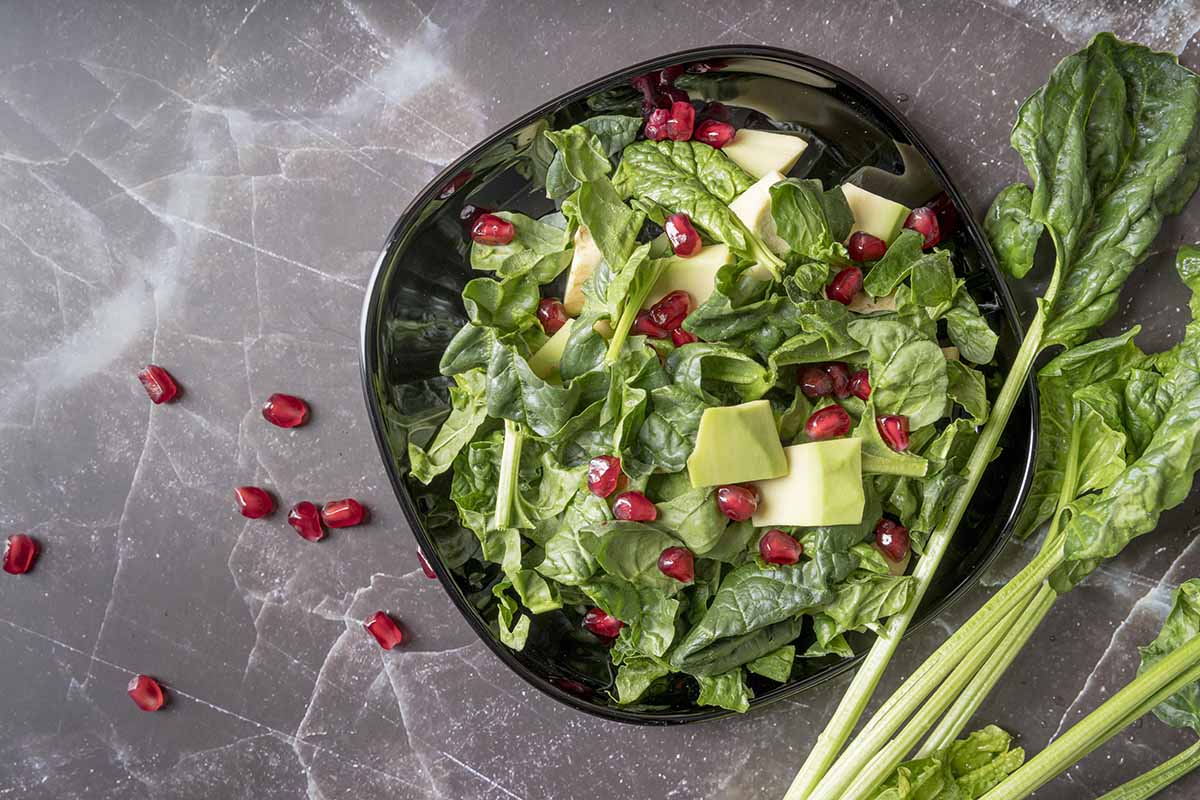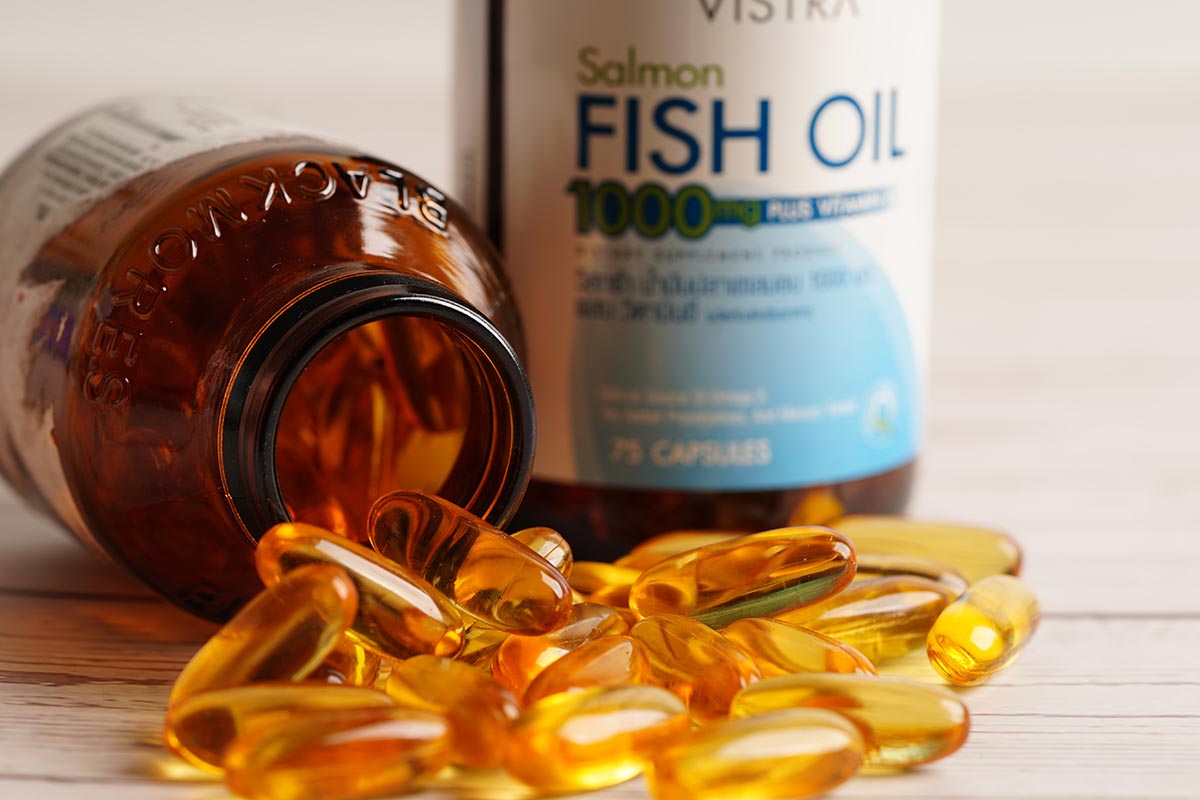4 Foods That Work With Fish Oil—And 4 That Don’t!
Taking supplements is a normal task for many of us, but there are many factors to pay attention to—mainly food interactions. Some foods work amazingly well, whether due to taste or nutritional effects.
Other foods do not mix well with fish oil. Although the results are not severe enough to cause long-lasting problems, they may upset the digestive tract.
Fish is undoubtedly the ultimate source of omega-3 fatty acids, with fish oil supplements being the next best thing. For people with allergies, an aversion to seafood, or non-availability of the food, having fish oil instead of fish works perfectly!
But there’s more; fish oil is purely fat. This means you worry about most food interactions, and stomach upsets while pairing fish with other foods don’t factor in. It’s the protein in fish that you need to be careful about—and fish oil is made up of fatty acids.
That’s said, like taking any supplement, be careful about what and how you eat. We’ve listed the foods that are okay, even advantageous, to pair with fish oil. Additionally, we’ve listed foods under the no-no section of interactions advised by health experts.
4 Foods OKAY To Pair With Fish Oil
Omega 3 fatty acids enhance your overall well-being and even amp up immunity. The way to consume this supplement matters—it either makes or breaks its benefits. Let’s start with the former and see what food you pair with fish oil for peace of mind.
- Leafy Salads
Where some people choose omega 3 fish oil supplement with additional vitamins in the capsule form, you can go for fish oil and leafy salads. Fish oil liquid is not easy to consume, which is why you can ‘hide’ it in a salad. Fish oil pairs particularly well with Caesar salad, and you can also go for this supplement in salads with garlic and anchovies to completely mask its taste and smell, as well as gain a plethora of nutrition in one go!
- Mild Fruity Smoothies
To keep your omega intake consistent, consider adding fish oil to smoothies. Fish oil and fruit pairs well together, and so does fish oil and superfoods. The reason to keep things ‘mild’ fruity is because acidic fruit and fish oil may sometimes mislead your gut. You can also add fish oil to chia seed puddings and oatmeal to start your day on a nutritious, energetic step.
- High-Fat Meals
On an empty stomach or with a light meal, fish oil tends to upset the gut. Also, the supplement taken with low-fat and low-energy meals may cause fishy burps. You need to take your fish oil with a high-fat meal—high enough to be healthy and make a practical pairing with fish oil, but not so fatty that it results in increased triglyceride levels that you are trying to drop with fish oil consumption!
- Multivitamin Supplements
Though omega 3 and multivitamins are not a ‘food’ pairing, it’s worth mentioning because you get a well-rounded and complete diet. Multivitamin supplements are packed with a variety of essential vitamins and minerals.
As a result, these come in handy when your regular diet falls short of essential nutrients. Where omega 3 targets your heart, brain, bone, and joints to improve health, multivitamins can tag along and elevate their efforts.
4 Foods To NOT Pair With Fish Oil
When it comes to fish oil, certain food combinations can cause digestive problems and negatively affect your well-being. To maintain optimal health, it’s best to steer clear of these four types of food close to taking fish oil.
- Dairy Products
A well-known fact about fish oil is that pairing it with dairy products can wreak havoc on your digestive system. In addition to causing discomfort and bloating, it may lead to skin allergies. This pairing can also be heavy on the stomach and may slow down digestion.
While it is really fish that you need to avoid pairing dairy with due to the high protein content found in both dairy and fish, taking fish oil and milk can disrupt the digestive flow. So, if you’ve just taken a fish oil, steer clear of dairy products for a while. Also, it’s worth noting that it is primarily milk that may cause adverse reactions in your stomach. By-products of milk such as yogurt and cheese are more forgiving.
- Pasta & Heavy Starchy Food
While taking care of your digestive health and making wise choices when combining different foods with fish oil, don’t forget to steer clear of high-starch dishes. By pairing fish with heavy or starchy dishes like potatoes or pasta, you may consume too many calories. Plus, excessive carbohydrates with fish oil can potentially cause your digestive system to slow down.
- Acidic Foods
It’s best to avoid high-acidity fruits like oranges and lemons when you take fish oil liquid or soft gels. These fruits can potentially disrupt the digestion process of fish. The same goes for acidic content in spicy food; these can disrupt the absorption of omega-3 fatty acids.
- Alcoholic Drinks
Various studies show that the oxidation of fish oil within the body could potentially aggravate alcoholic liver disease. It is important to note that if you consume more than two alcoholic beverages per day, it is best to refrain from taking fish oil supplements. If you are leaning toward taking fish oil anyways, consult a physician. They can guide you about safe omega 3 dosage and form of intake.
Bottom Line
You need to be careful about a few foods when on a regular routine of omega-3 fish oil consumption. However, it is important to stay informed. Healthy lifestyle choices start by making small changes. Pay attention to right and wrong food combinations with fish oil. As a result, you not only prevent stomach discomfort but also increase the effectiveness of omega 3.

